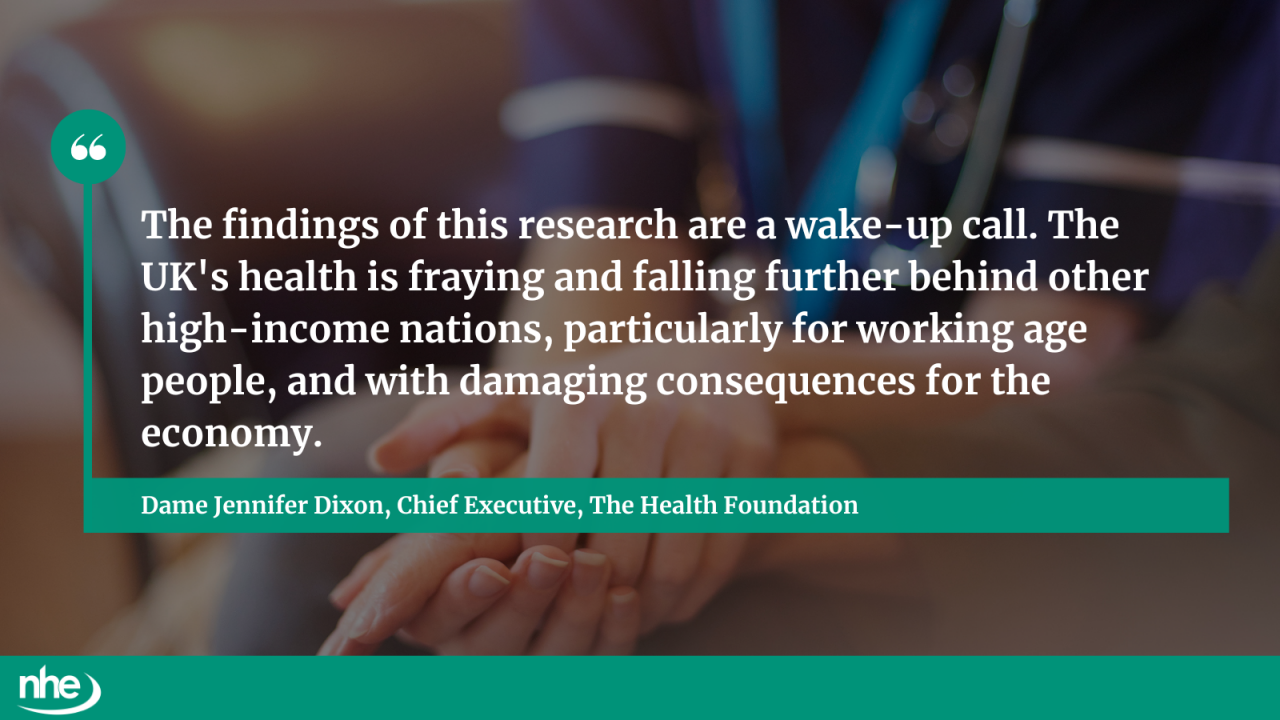A new report from the Health Foundation has revealed alarming trends in UK mortality rates, showing the country is falling behind other high-income nations and facing deepening health inequalities.
The research, conducted by the London School of Hygiene & Tropical Medicine, compares the UK with 21 peer countries and highlights a significant slowdown in improvements to death rates since the 2010s.
By 2023, female mortality rates in the UK were 14% higher than the median of comparable countries, while male rates were 9% higher. The situation is particularly stark among the working-age population (25–49 years), where female mortality was 46% higher and male mortality 31% higher than the international median.
The report also exposes severe regional disparities. Scotland, Wales, and Northern Ireland all have higher mortality rates than England, with Scotland performing worst—second only to the US among the countries studied. Within England, mortality rates in the North East and North West are 20% higher than in the South West.
A key driver of worsening outcomes among younger adults is a rise in deaths from external causes, including injuries, poisonings, and violence. These account for up to 80% of the difference in UK death rates for this age group compared to peer nations. The report highlights a shocking rise in drug-related deaths, with the UK’s rate more than three times higher than the average of peer countries in 2019.
Chief Executive of the Health Foundation, Dame Jennifer Dixon, said:
“The findings of this research are a wake-up call. The UK's health is fraying and falling further behind other high-income nations, particularly for working age people, and with damaging consequences for the economy.
“Improvements are both possible and are urgently needed. Action is needed to boost prevention, tackle drugs seriously, invest in public health services and address risk factors such as smoking, alcohol, and poor diet.
“Stronger measures to boost left behind areas and combat drug-related deaths are also essential to stem the shocking rise in drug-related deaths in Scotland and the North East in particular.
“The government's health mission promised such an approach, but progress has been slow. It is possible to reverse the UK's increasingly poor health, but only with bold and concerted action over the long term, and it needs to start now.”

In Scotland, drug-related mortality among 25–49-year-olds was four times higher than in England. Within England, the North East’s rate was 3.5 times higher for men and nearly four times higher for women than in London.
The Health Foundation is calling for a comprehensive strategy to tackle health inequalities, alongside long-term investment in public health and economic regeneration in areas of industrial decline. The report warns that poor health among working-age adults is not only a public health crisis but also a drag on economic growth, as it reduces labour force participation.
With the UK’s health outcomes now lagging behind most of its peers, the authors argue that urgent, sustained action is needed to reverse these trends and rebuild the nation’s health.
Image credit: iStock



















